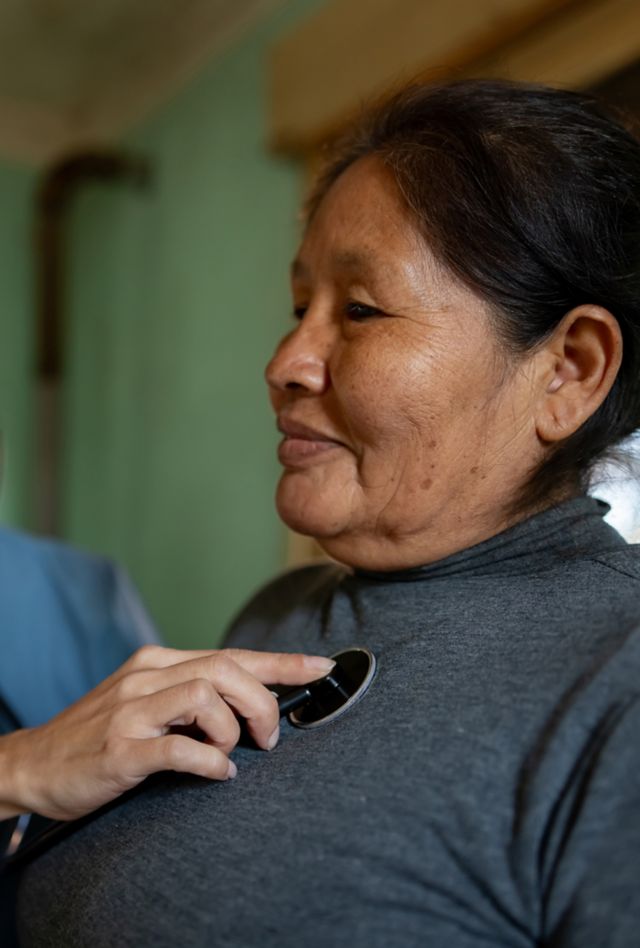Examining Policies Influencing Rural Latino Health Study

Problem
Rural Latino experiences and perspectives of health care access are unexplored.
According to the 2020 Census, 4.1 million (nine percent), of rural Americans are Hispanic/Latino. Rural U.S.- and foreign-born Hispanics/Latinos and their communities face stressors that can be detrimental to their physical and mental health. However, to date, there is little data on these potential negative effects. One reason why data is lacking may be that rural adults—especially those who have low incomes, are foreign-born, do not speak English, and/or do not have a permanent address—are hard to sample and interview.
Understanding the experiences and perspectives of these rural Hispanics/Latinos at the county level can help inform health policy and develop community-specific interventions to support whole-person health.
Solution
NORC is using a mixed-methods survey to collect rural Latino perspectives.
As part of a larger grant from the National Institutes of Health, the University of California, Merced, commissioned NORC to survey rural Latino populations in California and Arizona about their health care access experiences and perspectives.
We designed and are implementing a probability-based sampling approach (address-based and prepaid cell phone sample) for conducting some 3,000 phone and web-based interviews in English and Spanish. We will interview U.S.- and foreign-born Latino adults in rural census tracts in seven counties each in California and Arizona. The survey will ask participants about:
- Barriers to health care
- Concerns about mental health
Result
NORC’s findings will offer fresh insight into the social determinants of rural Latino health.
The new data and knowledge NORC collects will be used by the University of California Merced to understand how rural Hispanics and Latinos access and use health care.
Are You a Respondent?
Visit the UC Merced Community Health Survey website to learn more or take the survey.
Related Tags
Project Leads
-
Barbara Fernandez
Associate DirectorProject Director -
David Dutwin
Executive Director and Senior Vice PresidentPrincipal Investigator -
Stas Kolenikov
Principal StatisticianChief Statistician -
Brian M. Wells
Senior Research MethodologistChief Methodologist -
Alana D. Knudson
DirectorSubject Matter Expert












